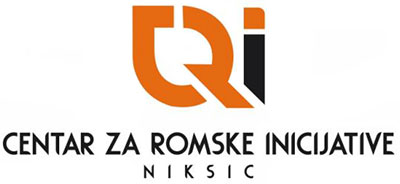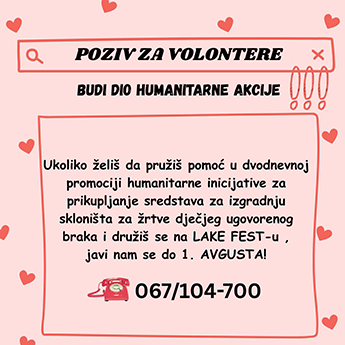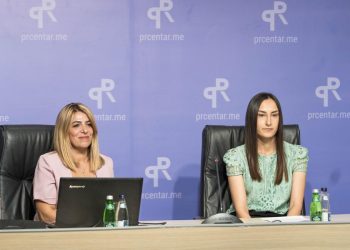[:bs]U periodu od 26.- 27.05.2022. godine Centar za romske inicijative je u saradnji sa Centrom za istraživačko novinarstvo Crne Gore (CIN-CG), organizovao dvodnevnu akreditovanu obuku pod nazivom: “Osnovna obuka stručnih radnika/ca, stručnih saradnika/ca i članova/ica multidisciplanirnih timova za prevenciju i suzbijanje dječjih ugovorenih brakova”.
Pomenutoj obuci prisustvovalo je 20 predstavnika/ca relevantnih institucija iz Podgorice, Nikšića i Cetinja (predstavnici/e Centara bezbjednosti, Centara za socijalni rad, Osnovnog i Vrhovnog državnog tužilaštva, Kancelarije za ljudska i manjinska prava i prevenciju bolesti zavisnosti). Učesnici/ce su kroz teorijski i praktični rad imali priliku da se upoznaju sa pojmom i karakteristikama dječjeg ugovorenog braka, nacionalnim zakonodavnim okvirima za suzbijanje ove pojave kao i načinima postupanja nadležnih institucija.
Na osnovu izlaznog testa svi učesnici/e su ispunili/e uslove za dobijanje sertifikata koji se izdaje od strane Zavoda za socijalnu i dječiju zaštitu Crne Gore.
Aktivnost je realizovana u okviru projekta: “RE zajednica: zdravstvo, obrazovanje, zapošljavanje i socijalna prava” koji finansira Evropska unija, a kofinansira Ministarstvo javne uprave, digitalnog društva i medija.























 [:en]In the period from 26th to 27th May 2022 The Center for Roma Initiatives in cooperation with the Center for Investigative Journalism of Montenegro (CIN Montenegro) organized a two-day accredited training entitled: “Basic training of professionals, professional associates and members of multidisciplinary teams for prevention and suppression of child arranged marriages”.
[:en]In the period from 26th to 27th May 2022 The Center for Roma Initiatives in cooperation with the Center for Investigative Journalism of Montenegro (CIN Montenegro) organized a two-day accredited training entitled: “Basic training of professionals, professional associates and members of multidisciplinary teams for prevention and suppression of child arranged marriages”.
The mentioned training was attended by 20 representatives of relevant institutions from Podgorica, Nikšić and Cetinje (representatives of the Security Centers, Centers for Social Work, Basic and Supreme State Prosecutor’s Office, Office for Human and Minority Rights and Prevention of Addiction Diseases). Through theoretical and practical work the participants had the opportunity to get acquainted with the concept and characteristics of child arranged marriage, national legislative frameworks to combat this phenomenon as well as the actions of relevant institutions.
Based on the test outputs, all participants have met the conditions for obtaining a certificate issued by the Institute for Social and Child Protection of Montenegro.
The activity was implemented within the project: “RE community: health, education, employment and social rights” funded by the European Union and co-financed by the Ministry of Public Administration, Digital Society and Media.


![[:bs]Dvodnevna akreditovana obuka[:en]Two-day accredited training[:]](https://crink.me/wp-content/uploads/2022/05/20220526_091752-1.jpg)
![[:bs] Završena promocija video zapisa “Istine i predrasude o Romima/kinjama i Egipćanima/kama”[:en]Promotion of the video “Truths and prejudices about Roma and Egyptians” ended[:]](https://crink.me/wp-content/uploads/2022/06/20220428_075134.jpg)






